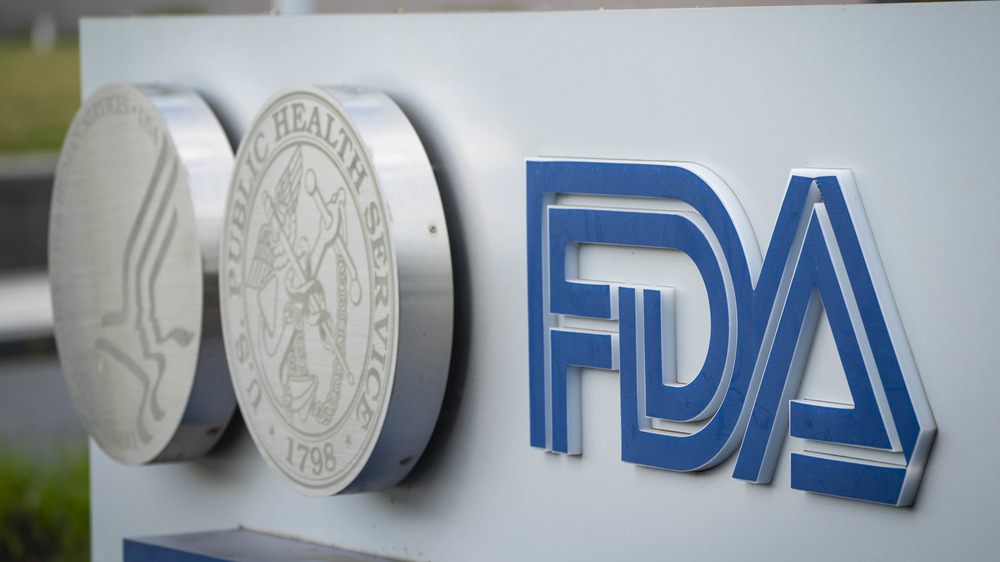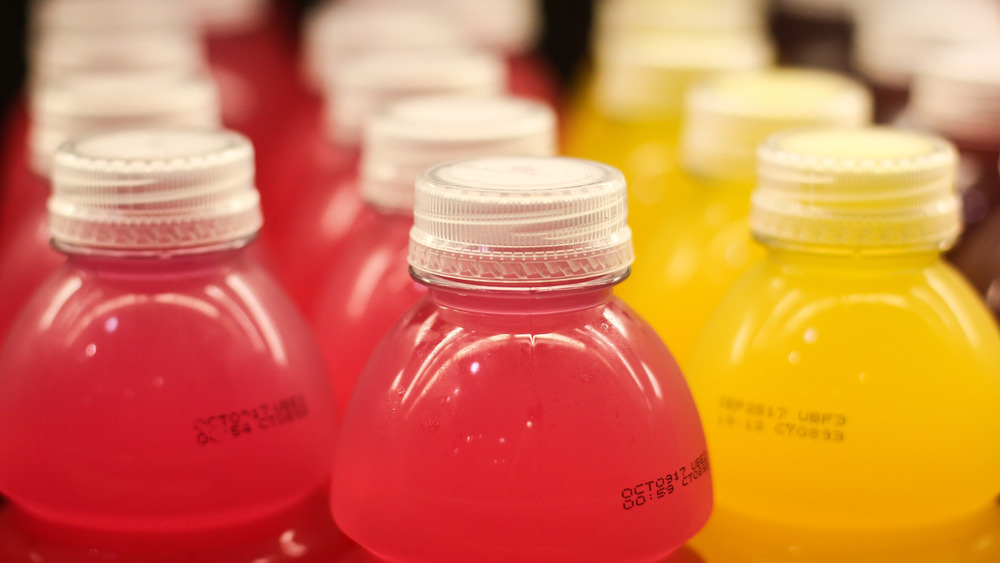The FDA Is Quietly Rolling Back Decades-Old Regulations. Here's Why You Should Be Concerned
Just before Christmas, former Food and Drug Administration (FDA) chief Scott Gottlieb went on Twitter to celebrate a regulation rollback on commercially made cherry pies that would, in his words, make the American people "free [to] add extra fruit, sugar, and make the crust especially thick." Days later, and in a similar move, the FDA announced it wanted to revoke the standards of identity for the manufacture of French dressing, which require the condiment to be made a specific way.
In both cases, the FDA argued that regulations were no longer necessary to ensure that the product meets consumer expectations, and that "the FDA has tentatively concluded that it is no longer necessary to promote honest and fair dealing in the interest of consumers and may limit flexibility for innovation" (via Today).
Cherry pie and French dressing are not the only food items on the FDA's standard of identity-related hit list. It is also looking to re-evaluate the regulations that set the definitions for yogurt and to revoke the standards for both low-fat and non-fat yogurt. As far as we can tell, that ruling has not yet been issued, although it had originally been scheduled to come up for consideration sometime this year.
Standards of identity are outdated, says FDA
The FDA claims it has good reason for wanting to change the regulations that define what a food product should be, and it provided that explanation in February of this year. Claudine Kavanaugh, Director of the Office of Nutrition and Food Labeling had explained that the standards of food identity were outdated. They had been set in 1938 "to promote honesty and fair dealing in the interest of consumers shortly after the Federal Food, Drug, and Cosmetic Act was enacted in 1938. Standards of identity describe in detail what a food product must contain, how it must be proportioned and sometimes how it must be manufactured." She mentioned ketchup, milk chocolate, and bread as examples of foods with standards of identity. Kavanaugh also said the time was right to establish the principles by which the FDA will alter, eliminate, or institute standards of identity moving forward.
But Auburn University assistant professor and author of a book on the FDA'S history, Xaq Frohlich, says that in pushing for the standards of identity to be set aside, the FDA could be abandoning the American consumer by permitting questionable practices on the part of food manufacturers. In an op-ed for The Washington Post, Frohlich says that rules like the cherry pie standard might look outdated, but these could have in actual fact, been the only thing that protected consumers from what he called market deceit.
Standards of identity discussions have split the food industry
Some food manufacturers have come out in full support of these changes because they say in some cases, the standards of identity are vague, and in others, they are too specific. During a discussion on changes held earlier this year, Bumble Bee Foods representative Mason Weeda raised one example, saying, "Canned tuna standard only permits the use of one flavor, lemon oil, which does not allow tuna manufacturers to adapt to consumer changing tastes. FDA should take a horizontal approach by permitting safe and suitable flavor ingredients in various standards."
Another example involves flavored water: the FDA says bottled water shouldn't have added ingredients, yet the market is full of water with fruit juices, flavors, or vitamins added to them (via Food Dive). These waters are instead regulated under a different set of rules that sit outside of the current standards of identity, but which are still under the oversight of the FDA. Other foods that sit under this category of "specific nonstandardized foods" include peanut spreads, frozen dinners, and potato chips made from dried potatoes.
Meat and dairy advocates are against changes to standards of industry regulations
The proposed changes have their critics, too, with the loudest voices coming from the dairy and meat industries. There are rules governing the standard of identity for milk which state that it needs to come from a healthy cow, that it may be pasteurized or unpasteurized, and that it "shouldn't have less than 8 and 1/4 percent milk solids and not less than 3 1/4 percent milkfat."
There are plant-based groups that want to continue to use the word "milk" to describe plant-based beverages like oat, soy, and almond milk. They've gotten around this so far by labelling their products "soymilk," "oatmilk," or "almondmilk" or by calling themselves "non-dairy beverages." The FDA Reader also says the food agency tends to observe products that are seen to defy regulations before doing something about them. This hands-off attitude has already irked one vocal opponent, Anita MacMullan, director of the Food and Drug Protection Division at North Carolina's Department of Agriculture and Consumer Services, who says, "When FDA chooses not to enforce the law, it erodes consumer trust in the agency and can endanger public health. 'Milk' has a clear definition and standard of identity established in regulation, and FDA has a clear duty to enforce it" (via Food Dive).
How the FDA will resolve the matter is still unclear
How the government eventually chooses to resolve the debate over the need for standards of identity is still unclear. However, as North Dakota State University points out, the standards exist for specific reasons. Standards of identity exist to help consumers. They not only set a common name for a specific food product, they also set content requirements for what a product should have.
In the case of commercial cherry pies, for instance, the product needs to be made with a minimum of 25 percent of the fruit, and no more than 15 percent of the fruit in the pie can be blemished. At the end of the day, it could come down to how much we trust food manufacturers and the FDA to have consumer interests at heart when deciding how food-related regulations should be drafted and carried out.
Judging by the number of social media users who called out Scott Gottlieb for his post celebrating the cherry pie rollback, that trust is very much in short supply. One user snapped: "This is not a thing you should crow about. The food industry has long shown itself to be absolutely uncaring about the health of its consumers, from white lead in flour to rotten cherries in cherry pie. This is a step back, not forward."




